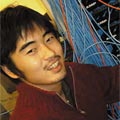P2P: The Japanese Angle
Back to Contents of Issue: April 2001
|
|
|||||
|
by Sam Joseph |
|||||
 AT AROUND THE TIME P2P (peer to peer) surfaced as a term to describe the Napster/Gnutella file-sharing software, I was busy getting ground down under the wheels of a Japanese B2B Internet startup. In my brief moments of lucidity (usually just before or after a major business model rethink), I was trying to figure out if there wasn't some way to set up a Net business without the huge investment required for development and hardware. P2P seemed to offer a solution to some of those problems in that instead of buying or renting huge server farms, you could outsource data storage to the network and even personalize a service more effectively. AT AROUND THE TIME P2P (peer to peer) surfaced as a term to describe the Napster/Gnutella file-sharing software, I was busy getting ground down under the wheels of a Japanese B2B Internet startup. In my brief moments of lucidity (usually just before or after a major business model rethink), I was trying to figure out if there wasn't some way to set up a Net business without the huge investment required for development and hardware. P2P seemed to offer a solution to some of those problems in that instead of buying or renting huge server farms, you could outsource data storage to the network and even personalize a service more effectively.
As I started to investigate this new technology, one of the first sites I found was the Japanese P2P nonprofit group Jnutella (www.jnutella.org). While the more quickly established US bulletin boards and discussion lists now rarely have more than one lonely posting a week -- quite possibly because the interested parties have all clammed up behind NDAs -- Jnutella, founded in May 2000, is still going strong. That's not to say Japanese P2P activists aren't being offered VC money, but there's something about the Japan-P2P mix that's holding developers' interests and keeping things out in the open. More on the Japan's P2P angle in a moment. First, for those of you holed up in a nuclear bunker last year, here's the P2P story so far. Around the time that some were noticing that the Internet bubble was, in fact, a bubble, news was posted on the SlashDot bulletin board that AOL's Nullsoft division had released an "open source Napster clone" named Gnutella. Napster, software that enables users to swap music files (MP3s) across the Internet, had already become so popular that it was being sued by the RIAA (Recording Industry Association of America) for copyright infringement. AOL pulled Gnutella off the Net a day later amid concerns that it might prove difficult to control. The concerns were soon justified. Despite the fact that the program had been available for less than 36 hours, software enthusiasts reverse-engineered the system, and before you could say "preliminary injunction," the Net was awash with Gnutella-specification documents and clones. All of the Gnutella clones spoke the same language -- the Gnutella protocol -- and as they began contacting one another over the Internet, the "GnutellaNet" emerged. Subsequent reports tended to talk of three systems: Napster, Gnutella, and FreeNet. The term P2P emerged later to describe these and other distributed sharing systems. Napster, for those who haven't used it, is a piece of software that lets you search for music files on the computers of other users. Its main innovation is that while you search a central index to find out who has what file, you contact that person's computer directly in order to download the file. This opens up all the spare storage space in all the computers connected to the network, and nobody has to spend valuable time moving all the files into a central location and making the servers available 24/7. However, there does have to be a central index somewhere, and this means that whoever is hosting that index is subject to legal (and presumably extra-legal) attack. One of Gnutella's much-praised features is that it has no central index. Search is carried out by queries propagating through the network until a match is found. This makes searches less reliable and slower, but at the same time it's not clear who, if anybody, can be sued. FreeNet, also decentralized, has yet to become widely used, but it's notable for its creators' strong advocation of free-speech principles. Media giants Bertelsmann and Edel Music have recently dropped legal proceedings against Napster and started negotiating the creation of fee-based online music services. Independently of the evolving legal picture, any number of new P2P systems have been released, such as BearShare, Scour, MojoNation, Groove, iMesh, Ohaha, Filetopia ...the list goes on. In some cases these were existing companies or projects that were highlighted by Napster publicity and Gnutella expansion. "P2P" became the new, new thing, with VCs' in-trays piling up with the latest P2P business models (some looking suspiciously like subtle rewordings of B2B business plans).
What about the P2P scene in Japan? Based on my research, the most suitable adjective would have to be "nascent." Throw in the wireless angle and the descriptive phrase "brimming with potential" could also be accurately applied. But we'll get to wireless in a moment. Certainly there are people who want to download music in this country, if that's any measure of P2P potential. Some 20,000 users a day, for example, visit Listen Japan's Web site. The company, which has to spend a lot of yen on maintaining its enormous index of purchasable music files, likes the idea of farming out computing overhead to a network of users. "We would like to acquire a P2P company and work on integrating an effective payment system," CEO Katsu Kawano told me. One idea is a P2P version of the company's online radio service, where users could create their own stations and listeners could buy songs using a Listen Japan--branded P2P search technology. But it's just a possibility. Kawano, while eager to see what companies and concepts emerge from the Jnutella community, says, "There aren't really any P2P companies in Japan at the moment." None at all? Finding that hard to believe, I start asking on the Jnutella mailing lists, but the main thrust of opinion seems to be that P2P and in fact the Internet in general will not really take off until broadband services became more widely available. But I do hear about one software shop that could, perhaps, be correctly labeled as P2P. Rumor has it that the trio of entrepreneurs running a startup called Gram Design is deeply immersed in the P2P universe. I decide to pay them a visit ... AFTER A SERIES OF hyperpolite email introductions in Japanese, I make my way to Gram Design's office, a converted apartment in Setagaya, just outside Tokyo. (And we're talking fully converted, by the way: reception area, meeting room ...nice. It has a kind of "genuine Japanese startup" feel to it, resembling in no way some of the imported foreign affairs I've seen in my travels.) Gram Design is the second startup of three Japanese entrepreneurs: chief designer Hiromasa Komori, creative director Madoka Akaike, and chief engineer Hidekazu Umeda, an active Jnutella participant. Each has been working in the field of P2P for more than three years -- long enough to remember when it was just distributed computing, before "P2P" became the buzzword of choice.
I reach for my coffee. Clearly it's time to give my brain cells a boost. "P2P is a movement toward more direct forms of communication," Akaike offers, "with a focus on data sharing and data exchange." "In many ways," continues Umeda, "it's about a programming style change towards an emphasis on discovery, and a need to think more seriously about network connectivity issues." "P2P is much more personal," says Komori. "You can get a feel for someone's personality by the way that they describe their songs in Napster, by the songs they listen to." This is more like it, I think. Here are Japanese entrepreneurs with P2P in their blood. Akaike compares P2P to an era in Japan's past. "In the feudal world, power and money was concentrated with the lords of the manor, with serfs tied to working on the land, merely generating more revenue for the lord." She continues, "Think of money and power as information. Even with the Web, the majority of us cannot publish information effectively and have to scrape our information from a number of centralized sites. P2P could herald the breakup of the information distribution monopoly. Just as the serfs gained the freedom to own their own land, or at least to gain profit from working it, P2P could break the reliance of the masses on the centralized media barons, so that they are free to profit directly from publishing their own information."
Speaking of communities, it's time to visit the man behind the P2P community here: Yuichi Kawasaki, the founder of Jnutella.
First he explains the thought process that led to the creation of Jnutella: "Using the Internet every day, I often asked myself, 'Is this what the Internet is supposed to be like?' So centralized and impersonal. When Gnutella and Napster appeared, they were just the things I'd been searching for. They're built by individuals, and composed of lots of interacting individuals, without any concept of class or rank." Inspired by the new developments, Kawasaki created the Jnutella Web pages and mailing lists, and soon the site had a dedicated group of followers, with over 1,000 subscribers at press time. Initially focused on Gnutella, Jnutella quickly broadened its perspective. Now it acts as a discussion forum for Japanese P2P users and developers and serves as a repository for translated versions of important documents, such as the Gnutella protocol. In addition, Jnutella released its GTK, or Gnutella ToolKit, in Java, to help Japanese developers explore the P2P possibilities. Western equivalents are still in the pipeline stage as of this writing. Jnutella members have also started on something called the Mobile Gnutella Project (MOG), intended to facilitate a P2P framework for mobile devices. It's at this point that Japan's P2P scene starts to get very, very interesting ... "JAPANESE PEOPLE OFTEN THINK of their computers as 'cold media' -- I think they prefer more direct interaction," Kawasaki says, offering his own spin on why cellphones are so big in Japan. Everyone has their own theory on this. Whatever the reason, be it a preference for cute handheld devices, easy Japanese character entry, or lack of space for bulky desktops, no one is questioning that the Japanese mobile phone market is huge.
The range of the Bluetooth wireless protocol for even high-powered devices will not exceed a hundred meters, meaning that all the individuals in these virtual communities would have to be pretty close together to form a P2P network. But it does not take a great leap of imagination to envision wireless services with much greater ranges, which would allow the formation of independent, decentralized P2P networks composed only of wireless-enabled devices and their users. The mind boggles at the applications. Someone possessing one of these P2P mobile devices could observe a traffic accident and perform a search to find the nearest doctor, with the request for help jumping directly from phone to nearby phone until a person with the appropriate skills is located. Pretty useful, particularly if an earthquake has taken out the telecommunications towers that normally support mobile phone communications. Of course, there are various technical and administrative hurdles that must be cleared before such an infrastructure could be deployed and reliably used. Notably, you would want some trust or credit mechanism, so that you didn't find your keitai always being phoned by some automated system trying to sell you life insurance, or just so busy processing packets for other people you couldn't get a word in. In the meantime, Kawasaki and other Jnutella members are setting their sights more realistically on developing three prototype applications for the MOG system: 1. Ride-booking. Your mobile phone would communicate with a kiosk at Disneyland to book your place in that four-hour queue for Space Mountain. That way you can enjoy wandering around until you're paged that it's time for your ride. Or even sell your space in the queue to someone else.
3. Music swapping. We're already seeing MP3-enabled phones. The next step with P2P and wireless doesn't take much imagination. (See the "Pirate to Pirate" sidebar for the copyright implications.) Some of these ideas are more P2P than others, and some aspects of the ride-booking system could be implemented in a standard centralized framework. (It's also not clear that Disney would actually benefit from the scheme, though if enough customers wanted it ...) Nonetheless, Kawasaki certainly doesn't shy away from talking up the prospects. "As we move from 'peer to peer' to 'person to person,' mobile media is the key to a more personal, equal, and freedom-based Internet. Perhaps the day when Japanese P2P takes over the world is not so far away." Grandiose? Most probably. Unrealistic? Time will tell. For now, it's unclear where exactly wireless P2P in Japan is headed. But judging from the conversations I had and the amount of activity on Jnutella, lots of people here appear to be involved in taking it somewhere. Science fiction may tell us the ultimate destination. After all, one year ago, before Japan's wireless Web took off, this whole idea still belonged in sci-fi. Now that it's tantalizingly near to reality, at least in this country, the imaginings of science fiction writers may, for the moment, be the best guides. In Idoru, a cyberpunk novel set in Japan, William Gibson describes a virtual place that exists outside the controlled and monitored areas of official cyberspace. Gibson's "Walled City" existed only by the efforts of a community of otaku, passing data between their own computers, effectively their own private Internet. Living here in Tokyo in 2001, one realizes that Gibson could almost be describing a P2P-enabled mobile device community. Sound big? Yeah, it is. Maybe as big as that other thing Gibson predicted: the Net.
Sam Joseph, a Tokyo-based consultant in distributed computing, AI, neural networks, and cognitive psychology, has developed his own P2P system at www.neurogrid.com. |
|||||
Note: The function "email this page" is currently not supported for this page.







